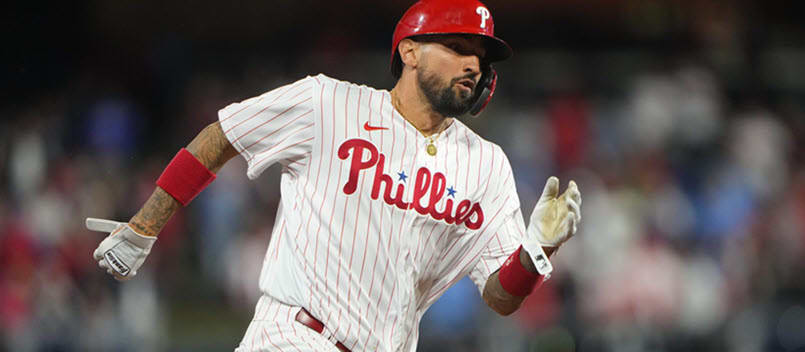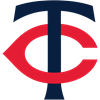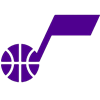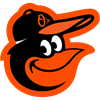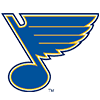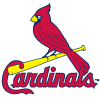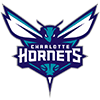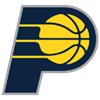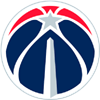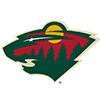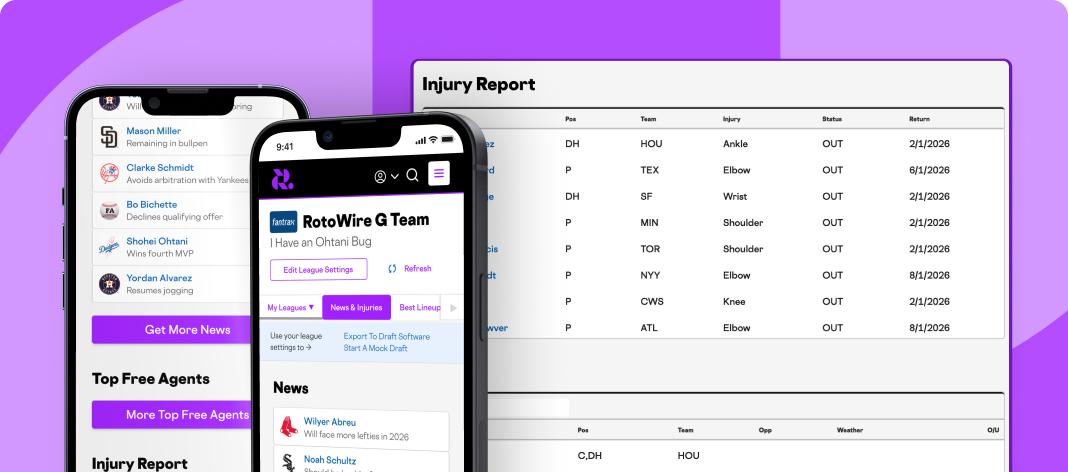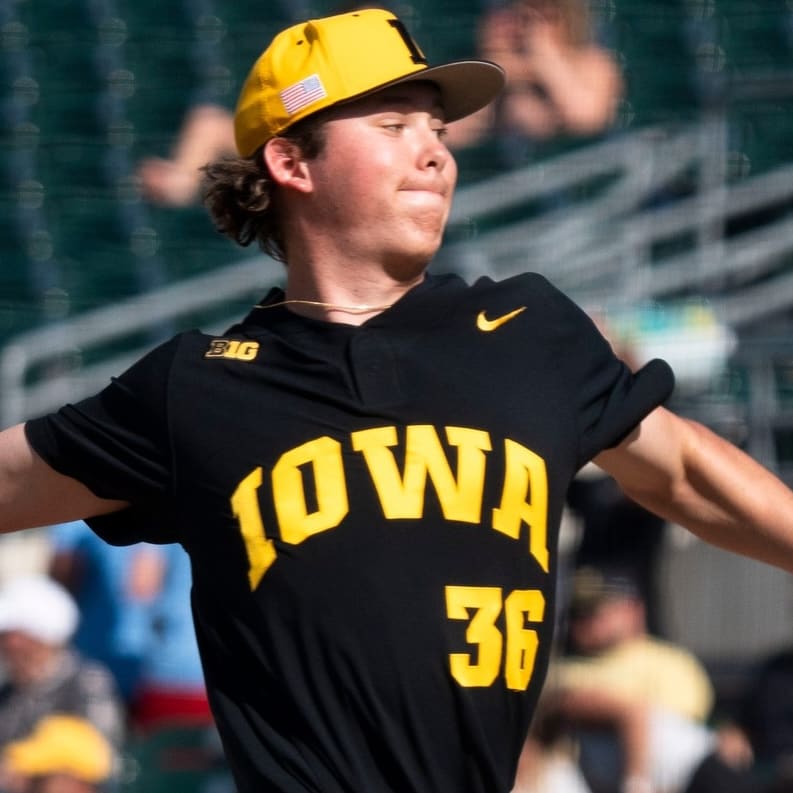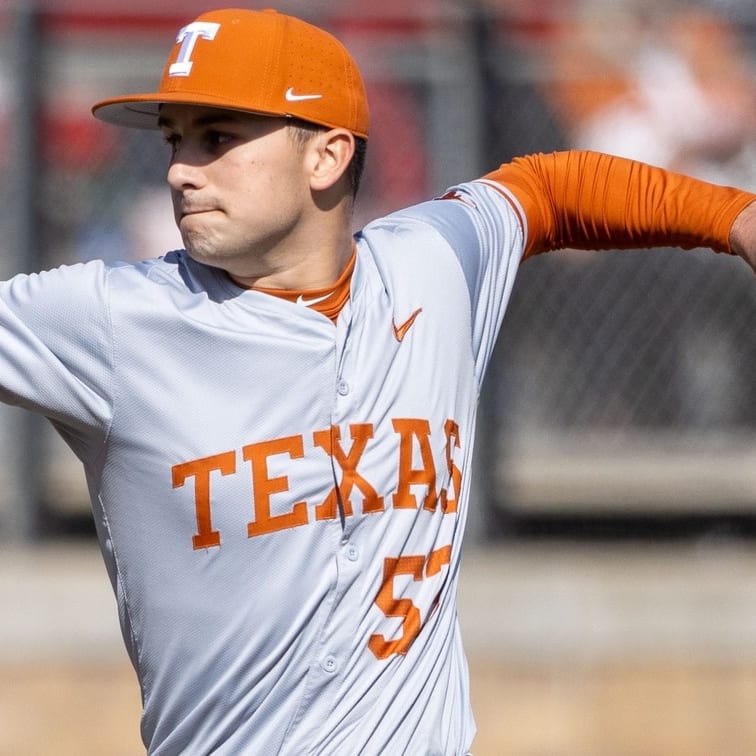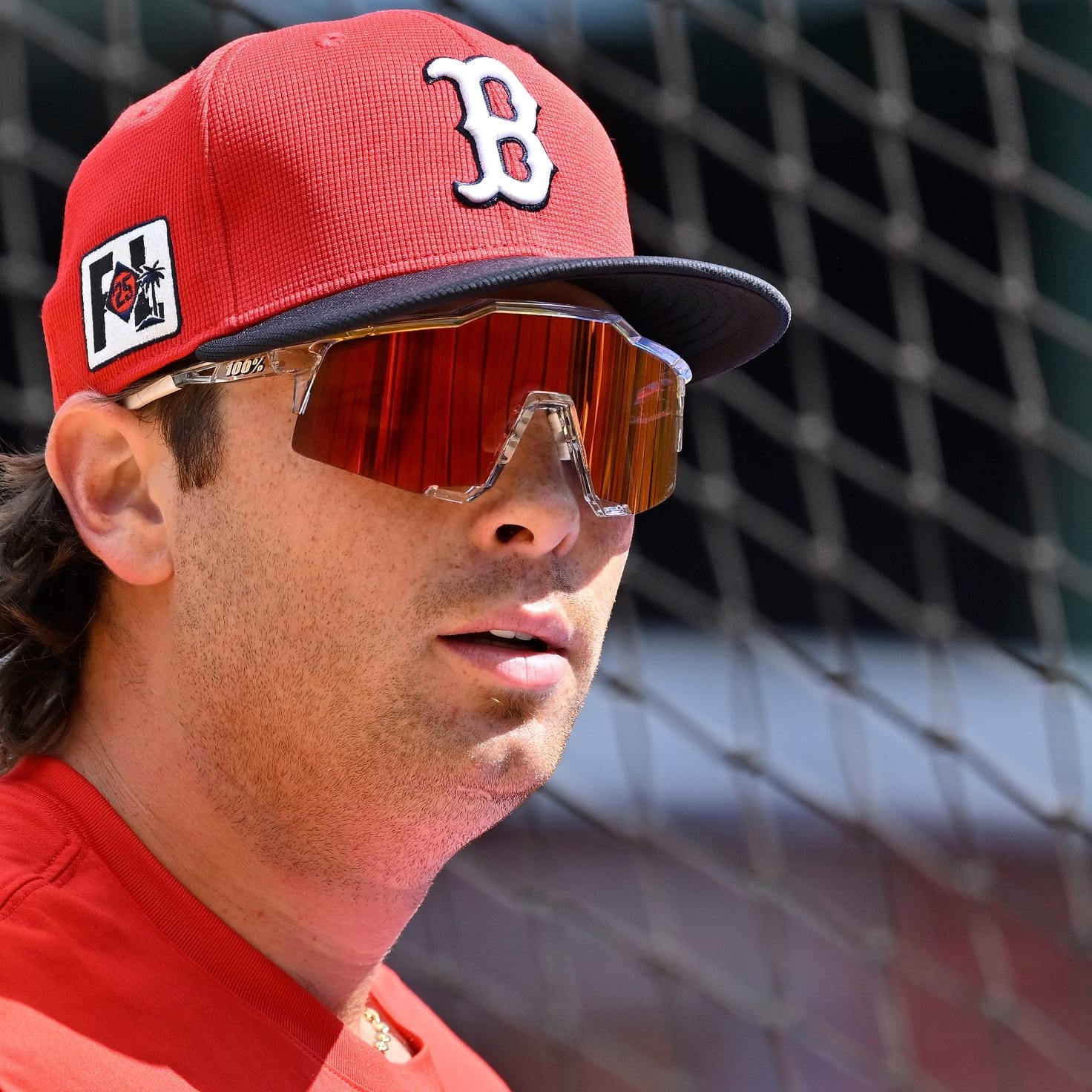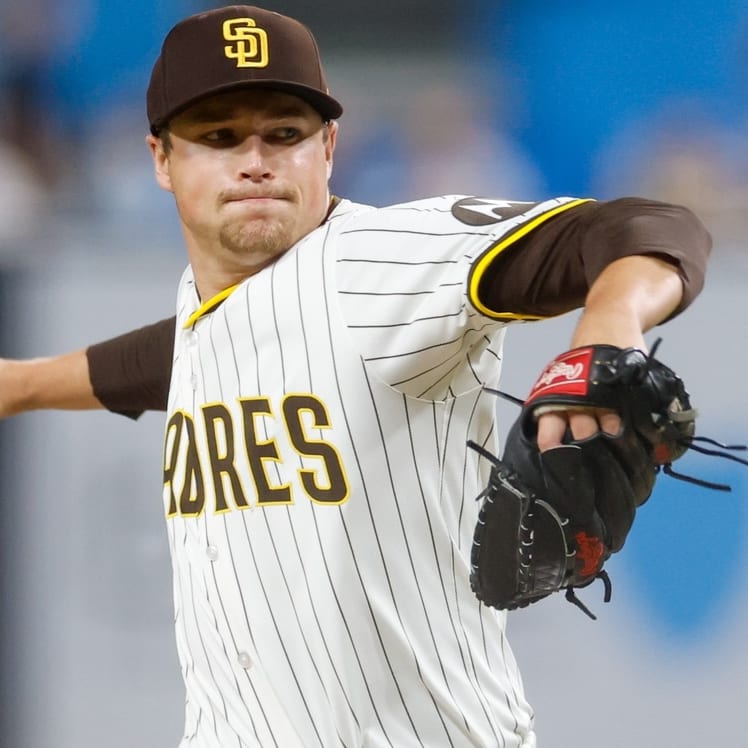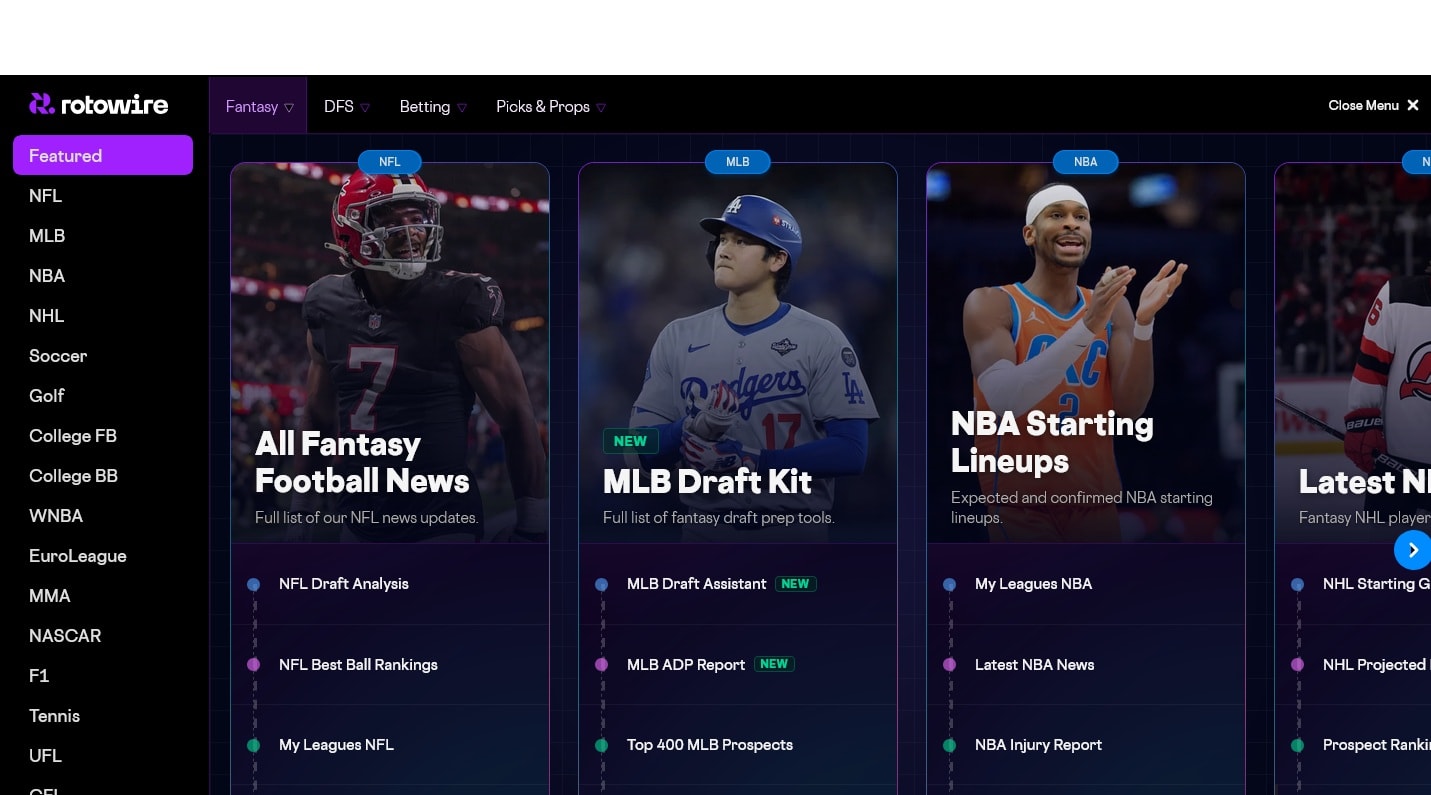The best hitters in baseball tend to have above-average plate discipline paired with solid contact quality. The tier below that contains players who aren't great in both areas, such as those with shaky plate discipline who make up for it with elite exit velocities and barrel rates. Think of hitters like Javier Baez, Franmil Reyes, and Joey Gallo, an unreliable group that could still provide enough power to make up for a concerning batting average when things break right.
What happens when the bottom falls out, and these hitters don't produce the power we're used to? It's hard to cut hitters with a track record in deeper leagues, but we might need to react to their recent skill changes. Can these hitters turn it around?
Avisail Garcia (OF, MIA)
With the move from Milwaukee to Miami, Garcia traded a ballpark downgrade for potentially more regular playing time. His skills plus his regular role looked like it should translate into quality results, but that hasn't happened this season, as he owns a slash line of .234/.268/.328 with seven home runs and four stolen bases. Garcia possesses elite raw power, as evidenced by his 116.8 mph maximum exit velocity, which sits in the 98th percentile, though that's only one piece of the puzzle. Last season, García had a career-best 12.2 percent barrel rate and finished just shy of 30 home runs and double-digit stolen bases. He's down at a 6.9 percent barrel rate this season, and he's been trending downwards
The best hitters in baseball tend to have above-average plate discipline paired with solid contact quality. The tier below that contains players who aren't great in both areas, such as those with shaky plate discipline who make up for it with elite exit velocities and barrel rates. Think of hitters like Javier Baez, Franmil Reyes, and Joey Gallo, an unreliable group that could still provide enough power to make up for a concerning batting average when things break right.
What happens when the bottom falls out, and these hitters don't produce the power we're used to? It's hard to cut hitters with a track record in deeper leagues, but we might need to react to their recent skill changes. Can these hitters turn it around?
Avisail Garcia (OF, MIA)
With the move from Milwaukee to Miami, Garcia traded a ballpark downgrade for potentially more regular playing time. His skills plus his regular role looked like it should translate into quality results, but that hasn't happened this season, as he owns a slash line of .234/.268/.328 with seven home runs and four stolen bases. Garcia possesses elite raw power, as evidenced by his 116.8 mph maximum exit velocity, which sits in the 98th percentile, though that's only one piece of the puzzle. Last season, García had a career-best 12.2 percent barrel rate and finished just shy of 30 home runs and double-digit stolen bases. He's down at a 6.9 percent barrel rate this season, and he's been trending downwards throughout the year, which causes added concern.
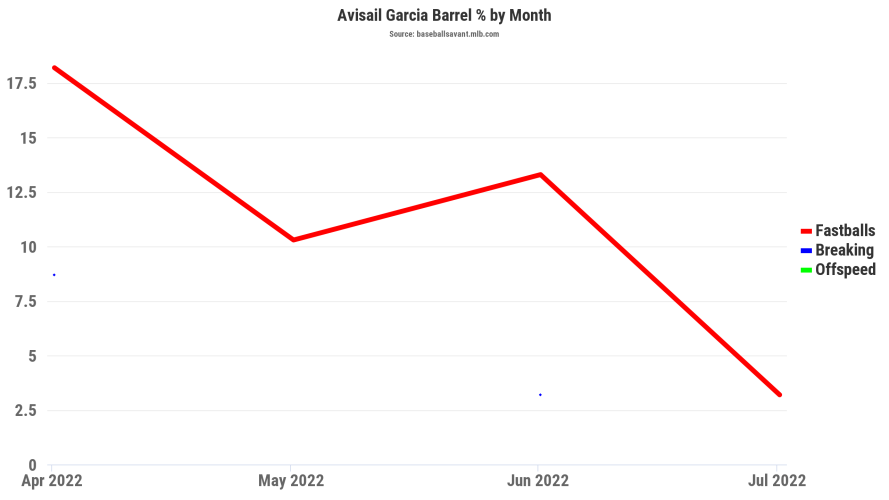
A contributing factor to Garcia's barrel rate dropping five points is that he's hitting too many groundballs, as his 55.1 percent groundball rate is above his 47.2 percent mark from last season as well as his career mark of 50.8 percent. His 12.1 percent HR/FB rate is down from 26.1 in 2021 as well as his career average of 16.9 percent, which suggests some bad luck, but there's more than bad luck going on here. When hitters like Garcia hit too many groundballs, they must crush flyballs and line drives. Garcia averaged 95.2 mph on flyballs and liners last season but is down to 94.3 mph this year. While that's still above average, it aligns with his drop in barrel rate.
Garcia's shaky plate discipline adds to concerns about his declining contact quality. He's typically showed an aggressive approach, with a career 42.0 percent chase rate and 57.6 percent swing rate. This year, he's slipped to a 46.2 percent chase rate and 60.2 percent swing rate, the latter coming in around 12-13 points higher than the league average. While his chase rate is unlikely to improve too much given his career norms, it's at least gradually dropped from 47.5 percent in April and May to 44.9 percent in June and July.
On a positive note, Garcia does still have his aforementioned playing time, as his lineup spot remains stable with Garrett Cooper (wrist) and Jorge Soler (back) hitting the injured list. Garcia has avoided the injured list himself this season, missing only a few games due to a back issue and mild inflammation in his left hand. Still, his poor plate discipline and heavy groundball rate are concerning, so temper expectations with production moving forward.
Nick Castellanos (OF, PHI)
After Castellanos posted career-best numbers across the board with the Reds last season, he earned a five-year, $100 million contract with the Phillies. Unfortunately, his eight home runs and .245/.290/.365 slash line are far below expectations. Like Garcia, Castellanos' 7.4 percent barrel rate is down three percentage points from last season, thanks in part to an increased groundball rate (42.4 percent). Unfortunately, his barrel rate keeps trending downwards, as shown in the visual below.
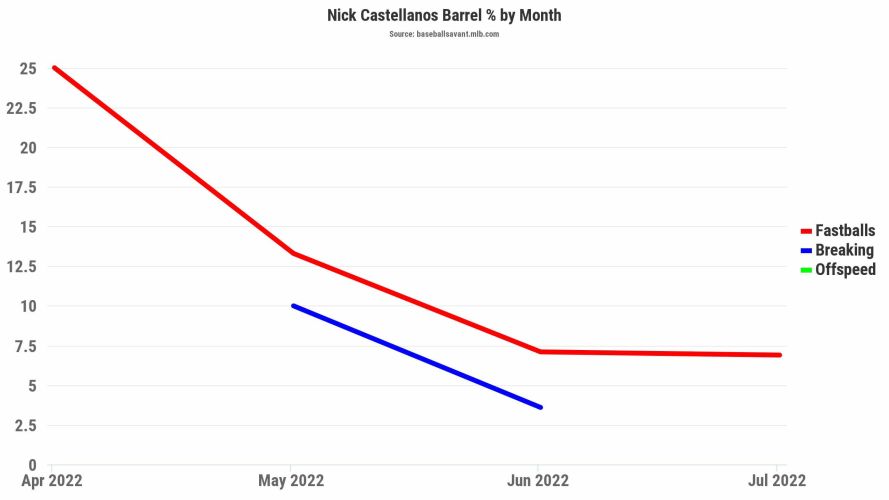
Castellanos owns a strong 25.2 percent line drive rate for his career, but his 20.7 percent mark this year is his lowest since his rookie season in 2013. He's also been unlucky with an eight percent HR/FB rate, well below his 23.1 percent mark over the last two years. Castellanos is also chasing pitches outside the zone at a career-worst rate (44.4 percent), up four points from 2021 and nearly seven points from his career chase rate.
Can Castellanos bounce back in 2022? The visual below shows Castellanos struggling in the outer half of the zone this year after showing strong plate coverage in 2019 and 2021.
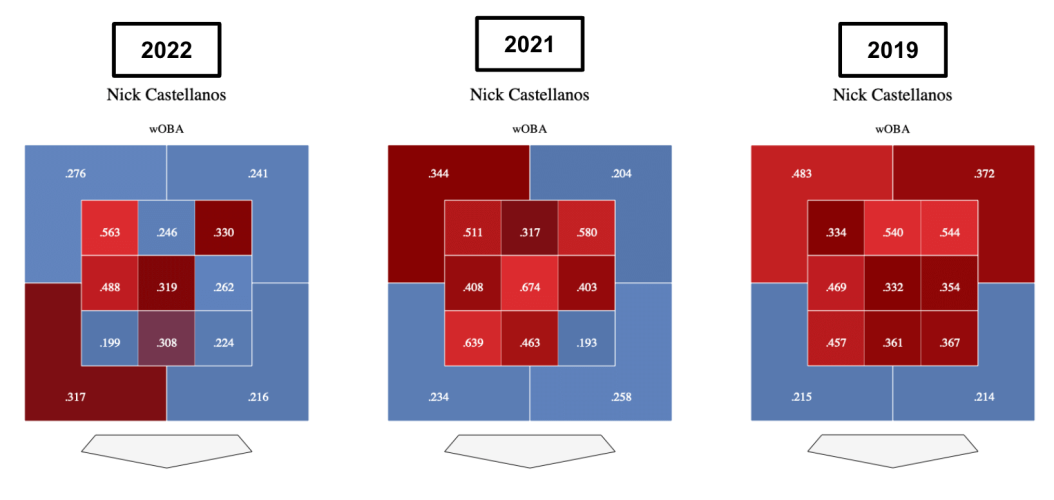
Castellanos has particularly struggled against sliders, which explains the blue patches on the outer half in the above picture, as pitchers have been pounding him with breaking balls away. He's how he's fared this year and last against fastballs and breaking pitches:
- 2022 vs. Fastballs: .280 BA, .440 SLG, .345 wOBA
- 2021 vs. Fastballs: .376 BA, .677 SLG, .460 wOBA
- 2022 vs. Breaking: .219 BA, .323 SLG, .241 wOBA
- 2021 vs. Breaking: .232 BA, .474 SLG, .317 wOBA
Castellanos' performance has dipped against fastballs as well, but his results against breaking pitchers are meaningfully below his career marks of .241 BA, .428 SLG, and .297 wOBA. It's hard to cut a hitter with a consistent track record like Castellanos in a decent offense, so I'd still consider attempting to buy low, but his plate discipline and contact quality skills look scary.
Jeimer Candelario (3B, DET)
Although Garcia and Castellanos have shown both worse plate discipline and worse contact quality in 2022, Candelario has shown more of a mixed bag. Despite a career-best 26.4 percent line drive rate paired with above-average contact rates, Candelario has underperformed this season. With his above-average hit tool, it's interesting to see a career-worst 38.2 percent chase rate despite contact rates that remain near his career averages. He's shown a more aggressive approach overall, with his 52.1 percent swing rate coming in over six percentage points higher than his career average.
On a positive note, Candelario's 10.1 percent barrel rate isn't far from his peak of 10.3 percent (set in 2020) and represents a slight improvement from his 9.0 percent mark last year. Unlike García and Castellanos, Candelario's barrel rate has improved against breaking and offspeed pitches, with a slight dip versus fastballs.
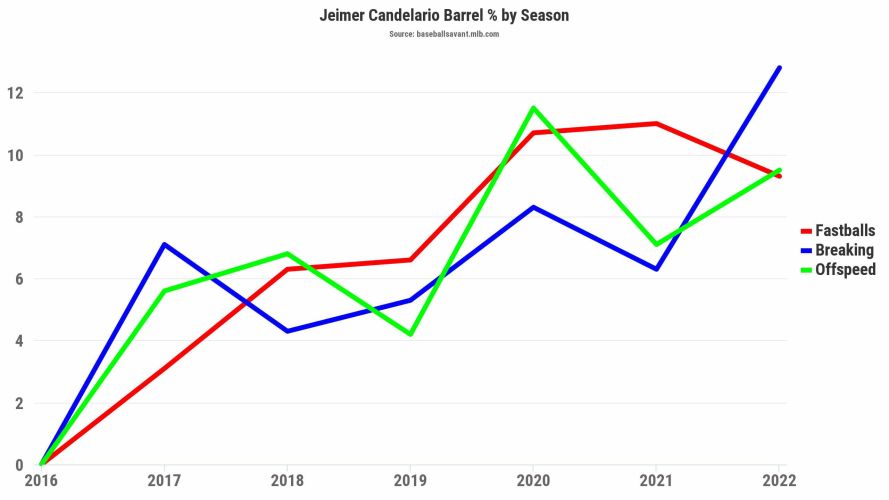
While Candelario hasn't been an elite power hitter, it's encouraging to see his barrel rates remaining consistent over the past few seasons. Looking deeper, Candelario has struggled against fastballs and offspeed pitches, with a .301 wOBA versus heaters and a .205 wOBA against offspeed stuff. The third baseman performed much better in 2021, posting a .387 wOBA against fastballs and .338 wOBA against offspeed offerings.
A switch-hitter, Candelario has performed slightly better as a right-handed hitter this season, with a .690 OPS versus lefties and .621 OPS against righties. That split matches his career splits, as he owns a .776 OPS overall versus left-handers and .712 OPS against right-handers. The visual below shows, which displays his wOBA by zone, shows exactly where he's struggled this season.
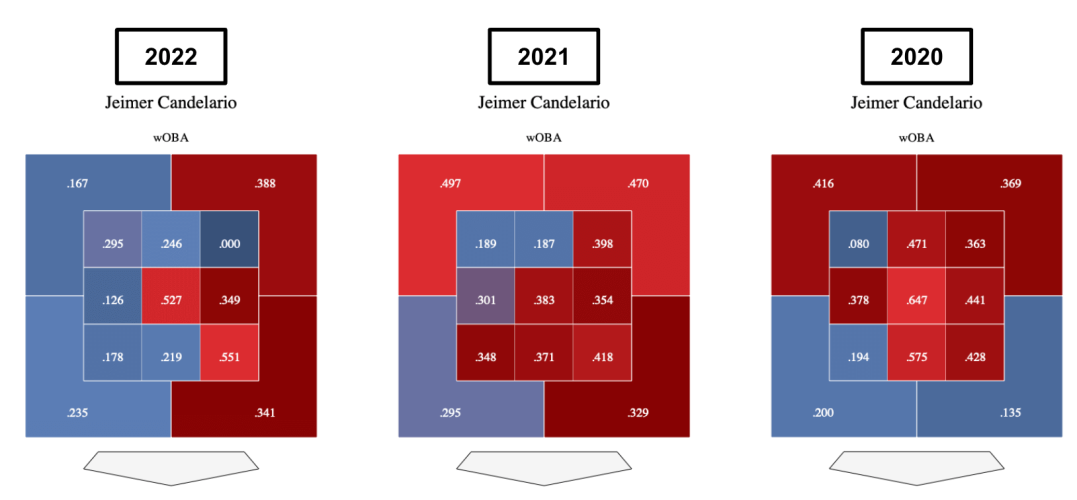
Although the visual includes all pitchers and not only lefties, it provides a clear explanation of Candelario struggling with the middle and outer half of the zone from the left side of the plate. Even when filtering by left or right-handed pitchers, the wOBA by zones remain similar.
After three brutal months from April to June, in which Candelario slashed .190/.242/.317 with five home runs in 219 plate appearances, he's already hit four home runs in July while slashing .255/.367/.490 in 60 plate appearances. Unsurprisingly, that's come with an improvement in his underlying skills, as he owns a 28.4 percent chase rate and a 13.2 percent barrel rate in July, albeit over a small sample. The season-long numbers still look awful, so if you believe in his underlying improvements in those areas, you may still be able to pull off a buy-low move.
